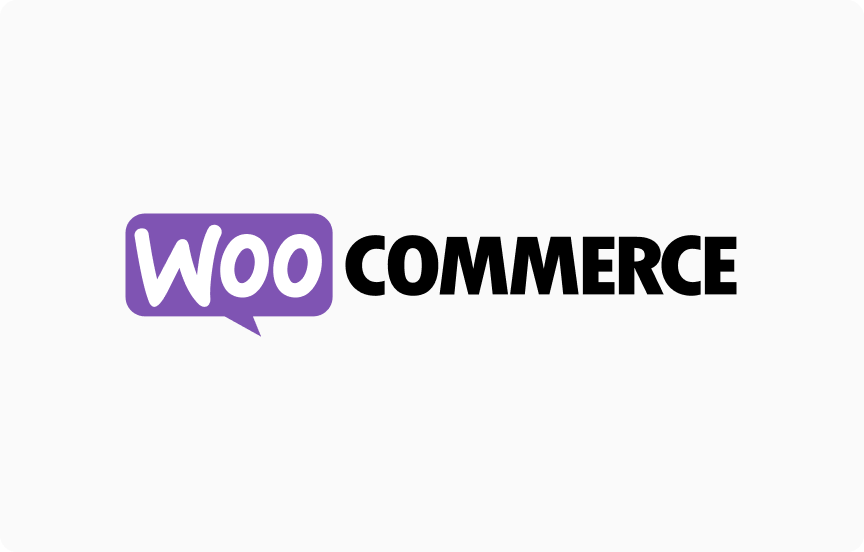In today’s competitive online marketplace, partnering with the right SEO company is crucial for improving your e-commerce business’s organic search rankings. Ecommerce SEO agencies play a vital role in assessing and ranking top service providers based on their track record, client satisfaction, and innovative strategies.
With the plethora of options available, selecting the best SEO agency for your online store can be a daunting task. This guide aims to help you navigate through the myriad of choices and find a partner that aligns with your business goals.
Conversion rate optimization complements SEO efforts to boost sales. We will delve into what to look for in top SEO companies for both conversion rate optimization in e-commerce, the essential services they should offer, and how to evaluate their expertise and professionalism.
Understanding the Importance of SEO for E-commerce
Before diving into the selection process, it’s vital to comprehend the significance of search engine optimization (SEO) for all ecommerce businesses, sites and websites, highlighting the need for organic promotion and the development of a targeted SEO strategy to improve rankings. Effective SEO strategies, as part of a broader digital marketing strategy that includes search engine and digital marketing channels, can significantly improve your website’s visibility on search engines, increase organic traffic, and ultimately boost online sales.
Understanding user intent is crucial for improving SEO effectiveness. By aligning your content with what users are searching for, you can better meet their needs and enhance your site’s performance.
What is Ecommerce SEO services?
E-commerce SEO (Search Engine Optimization) is the process of optimizing an ecommerce store or-commerce website to rank higher in search engine results pages (SERPs) and drive more organic traffic and sales. A technical SEO audit is essential in identifying issues that may hinder the website’s performance. It involves a combination of technical, both on page seo-page, and off-page optimization strategies to improve the website’s visibility, credibility, and user experience. E-commerce SEO is crucial for online stores and businesses to stay competitive, increase brand awareness, and drive revenue, with site architecture being a crucial element.
Why SEO Matters for E-commerce Businesses
Benefits of E-commerce SEO
E-commerce SEO offers numerous benefits for online businesses, including:
- Increased Online Visibility: By optimizing your website for search engines, you can significantly increase your online visibility. This makes it more likely for potential customers to find and visit your site, driving more traffic and potential sales.
- Improved Website Traffic: Effective SEO strategies can drive more organic traffic to your website. This means more potential customers are visiting your site, which can lead to increased sales and revenue.
- Cost-Effective Marketing: SEO is a cost-effective marketing strategy. Unlike paid advertising, where you pay for each click or impression, SEO focuses on organic traffic, which can provide long-lasting results without ongoing costs.
- Competitive Advantage: By optimizing your website for search engines, you can gain a competitive edge over your competitors. A higher ranking on search engine results pages (SERPs) makes it more likely for customers to choose your business over others.
- Improved Brand Credibility: A well-optimized website appears more professional and trustworthy. This can enhance your brand’s credibility, making it more likely for customers to trust and choose your business.
- Increased Conversions: E-commerce SEO can improve your website’s conversion rates. By attracting more qualified traffic and providing a better user experience, you can convert more visitors into customers.
- Better User Experience: SEO also focuses on improving the user experience. A well-optimized site is easier to navigate, faster, and more mobile-friendly, which can lead to higher engagement and satisfaction among your visitors.
Why Hire an E-commerce SEO Agency?
Hiring an ecommerce SEO company can significantly boost your online business by providing specialized services tailored to improve visibility, website performance, and drive conversions. These services often include both keyword research and optimization, which is essential for ensuring your ecommerce site ranks well on search engines.
Enhanced Visibility: The higher your ecommerce store website ranks on search engine results pages (SERPs), the more visibility and social media advertising you gain. This is crucial for attracting potential customers to your e-commerce store.
A well-defined content strategy is also vital in driving organic traffic, as it ensures that your social media or site consistently offers valuable and relevant information to your audience.
Increased Organic Traffic: SEO efforts help drive more organic traffic to your website, reducing reliance on paid advertising.
Improved User Experience: A well-optimized site provides a better user experience, leading to higher conversion rates.
Why Hire an E-commerce SEO Agency?
Hiring an e-commerce SEO agency can significantly enhance your online presence, drive more traffic, and boost sales. These top ecommerce seo agencies possess the expertise and resources to develop and implement a customized SEO ecommerce seo strategy that aligns with your business goals. An SEO audit is crucial in identifying areas for improvement, ensuring your ecommerce seo strategy is effective and comprehensive. By partnering with an e-commerce SEO agency, you can:
- Improve Website Visibility and Ranking: Expert SEO strategies can help your website rank higher on search engines, making it easier for potential customers to find you.
- Increase Website Traffic and Sales: Higher visibility and a strong backlink profile lead to more organic traffic, which can translate into increased sales and revenue.
- Enhance Brand Credibility and Reputation: A well-optimized website appears more professional and trustworthy, enhancing your brand’s credibility.
- Stay Ahead of Competitors: SEO agencies keep up with the latest trends and updates, ensuring your business remains competitive.
- Improve User Experience and Conversion Rates: Optimized websites offer better user experiences, leading to higher conversion rates and customer satisfaction.
Top E-commerce Platforms in Australia
Australia has a thriving e-commerce market, with numerous top ten ecommerce sites and platforms now available for businesses to sell their products online. Some of the top e-commerce platforms in Australia include:
- Shopify: Shopify is a popular e-commerce platform known for its user-friendly interface and extensive app ecosystem. It offers robust SEO features, seamless payment integration, and customizable themes, making it ideal for businesses of all sizes.
- WooCommerce: WooCommerce is a flexible and customizable e-commerce plugin for WordPress. It allows businesses to leverage the power of WordPress for their online store, with a vast array of plugins and themes for a tailored solution.
- BigCommerce: BigCommerce is known for its scalability and comprehensive set of features. It includes advanced SEO tools, multi-channel selling capabilities, and a wide range of integrations, making it suitable for businesses looking to grow and expand their online presence.
- Magento: Magento is a powerful platform designed for businesses with complex needs and large product catalogs. It offers advanced SEO features, extensive customization options, and a strong community of developers, making it a preferred choice for larger enterprises.
- Squarespace: Squarespace is primarily known for its stunning design templates, but it also offers e-commerce capabilities perfect for small to medium-sized businesses. Its all-in-one platform includes built-in SEO tools and easy-to-use marketing features.
- Wix: Wix provides an intuitive drag-and-drop website builder with e-commerce functionality. It’s ideal for small businesses and entrepreneurs looking to quickly set up an online store without extensive technical knowledge.
Top E Commerce Platforms in Australia
When it comes to an ecommerce company and setting up an ecommerce site or online store in Australia, choosing the right e-commerce platform is crucial for success. Here are some of the top e-commerce platforms that are popular among Australian businesses:
Shopify
Known for its user-friendly interface and extensive app ecosystem, Shopify is a leading choice for many e-commerce businesses. It offers robust SEO features, seamless payment integration, and customizable themes, making it ideal for many top ecommerce sites, social media advertising and businesses of all sizes.
WooCommerce:
As a WordPress plugin, WooCommerce is a flexible and customizable platform that allows businesses to leverage the power of WordPress for their online store. Its vast array of plugins and themes make it a popular choice for those looking for a tailored solution for online stores.
BigCommerce:
BigCommerce is known for its scalability and comprehensive set of features, including advanced SEO tools, multi-channel selling capabilities, and a wide range of integrations. It is suitable for businesses looking to grow and expand their online presence.
Magento:
Magento is a powerful platform designed for businesses with complex needs and large product catalogs. It offers advanced SEO features, extensive customization options, and a strong community of developers, making it a preferred choice for larger enterprises.
Squarespace:
While primarily known for its stunning web design and templates, Squarespace also offers e-commerce capabilities that are perfect for small to medium-sized businesses. Its all-in-one platform includes built-in SEO tools and easy-to-use marketing features.
Wix:
Wix provides an intuitive drag-and-drop website builder with e-commerce functionality. It’s ideal for small businesses and entrepreneurs looking to quickly set up an online store without extensive technical knowledge.
These three ecommerce platforms offer a range of features and pricing plans, allowing businesses to choose the one that best fits their needs and budget. By selecting the right e-commerce platform, Australian businesses can enhance their online presence, improve search engine rankings, and have digital marketing company drive more sales.
What to Look for in Top SEO Companies for E-commerce
Choosing the right SEO partner involves several key factors. Here’s a checklist of essential elements to consider when evaluating various ecommerce websites and SEO companies:
- Proven track record in eCommerce SEO, including the use of advanced SEO tools
- Comprehensive understanding of on-page and off-page SEO
- Expertise in technical SEO
- Strong portfolio of successful case studies
- Transparent reporting and communication
- Up-to-date with the latest SEO trends and algorithm changes
- Local SEO training and expertise: Ensure the company has a strong background in local SEO training and expertise, as this can significantly impact their ability to drive local traffic and enhance credibility in the eCommerce SEO field.
- Importance of competitive analysis: A good SEO company should conduct thorough competitive analysis to understand the market landscape and develop effective strategies.
1. Proven Track Record
Look for SEO agencies with a history of success, supported by case studies as evidence of their achievements. Client testimonials are another form of proof that can demonstrate their effectiveness. They should provide case studies and testimonials from previous clients, showcasing their ability to improve search engine rankings and increase online sales.
2. Comprehensive SEO Services
The best SEO companies offer a range of services tailored to e-commerce needs, including:
- On-page SEO: Optimizing product pages, category pages, and content marketing strategies to ensure relevant keywords are targeted effectively.
- Technical SEO: Ensuring your website’s structure and coding are optimized for search engines.
- Link Building: Developing a strong backlink profile to improve domain authority.
- Keyword Research: Identifying the right keywords that align with your e-commerce goals.
3. Custom SEO Strategies
A one-size-fits-all approach won’t work for e-commerce. A customized SEO strategy is a necessity for e-commerce businesses. Your chosen agency should create a customised SEO strategy tailored to your specific business needs, products, and target audience.
4. Expertise in E-commerce Platforms
Different e-commerce platforms (like Shopify, WooCommerce, and Magento) have unique SEO requirements. Shopify SEO and Magento SEO are examples of platform-specific expertise. Ensure that the SEO agency has experience working with your ecommerce seo company platform.
5. Transparent Reporting
Your SEO partner should provide regular reports that detail performance metrics, such as traffic, rankings, and conversion rates. SEO reports are crucial in tracking progress and identifying areas for improvement. This transparency allows you to measure the success of your SEO campaigns.
Evaluating SEO Agencies
Once you’ve narrowed down your options, it’s time to evaluate potential partners further. Look for SEO specialists as a credential to ensure expertise. Consider the following:
White-hat SEO practices are crucial for sustainable and ethical optimization, ensuring long-term success without risking penalties.
1. Credentials and Certifications
Look for agencies that employ certified SEO specialists with SEO certifications. These professionals should have a deep understanding of search engine optimization SEO practices and stay updated on industry trends.
2. Client Communication
A successful partnership requires effective communication. Client feedback is crucial in maintaining effective communication and ensuring that both parties are aligned. Choose an agency that prioritises regular updates and is responsive to your inquiries.
3. Ethical SEO Practices
Ensure the agency adheres to ethical SEO practices. Avoid companies that use black-hat techniques, which can lead to penalties from search engines.
Choosing the Right E-commerce SEO Partner
Choosing the right e-commerce SEO partner can be a daunting task, but there are several factors to consider when making your decision:
- Experience: Look for an SEO partner with extensive experience in e-commerce SEO. They will have a better understanding of the unique challenges and opportunities within the e-commerce market.
- Expertise: Ensure your SEO partner has expertise in the latest SEO trends and best practices. This will ensure they can provide the most effective SEO strategies tailored to your business needs.
- Results: A proven track record of delivering results is crucial. Look for an SEO partner who can demonstrate their ability to drive traffic and sales through case studies and client testimonials.
- Communication: Good communication is key to a successful partnership. Choose an SEO partner who prioritizes regular updates and is responsive to your inquiries, ensuring you are always informed about the progress of your SEO campaigns.
- Cost: Competitive pricing is important, but it should not be the only factor. Ensure you are getting the best value for your money by comparing the services and pricing structures of different agencies.
Top E-commerce SEO Agencies
E-commerce SEO agencies play a crucial role in helping online businesses improve their visibility, drive organic traffic, and increase sales. With the rise of e-commerce, the demand for specialized SEO services has grown significantly. In this section, we will explore the top e-commerce SEO agencies that can help businesses achieve their online goals.
E-commerce SEO Services
E-commerce SEO services are designed to optimize an e-commerce website for search engines, increasing visibility, driving organic traffic, and boosting sales. These services typically include:
- Keyword Research: Identifying relevant and high-performing keywords is the foundation of any successful SEO strategy. By targeting the right keywords, your e-commerce site can attract more qualified traffic from search engines.
- On-Page Optimization: This involves optimizing various elements of your website, such as title tags, meta descriptions, headings, and content. Effective on-page SEO ensures that your product and category pages are easily discoverable by search engines, improving your rankings.
- Link Building: Building high-quality backlinks from authoritative websites is crucial for increasing your site’s authority and improving its search engine rankings. A strong backlink profile signals to search engines that your site is trustworthy and relevant.
- Content Marketing: Creating and promoting high-quality, engaging content helps attract and retain a clearly defined audience. Content marketing not only drives traffic but also enhances your site’s credibility and authority in the eyes of search engines.
- Technical SEO: Optimizing the technical aspects of your website, such as site speed, mobile responsiveness, and XML sitemaps, ensures that search engines can easily crawl and index your site. Technical SEO is essential for maintaining a healthy and search-friendly website.
E-commerce SEO Strategy
A well-planned e-commerce SEO strategy is crucial for driving organic traffic and sales. Here are some key elements of an effective e-commerce SEO strategy:
- Conducting Keyword Research: Identifying relevant and high-performing keywords is the first step in any SEO strategy. By understanding what your potential customers are searching for, you can tailor your content and optimization efforts to meet their needs.
- Analyzing Competitors: Analyzing your competitors’ strengths, weaknesses, and SEO strategies can provide valuable insights. By identifying opportunities and gaps, you can develop a more effective SEO strategy that sets you apart from the competition.
- Optimizing Website Structure: A well-structured website is easier for search engines to crawl and index. Optimizing your website’s architecture ensures that all your pages are accessible and properly linked, improving your overall SEO performance.
- Creating High-Quality Content: High-quality, engaging content is key to attracting and retaining a clearly defined audience. By providing valuable information and addressing your customers’ needs, you can improve your site’s relevance and authority.
- Building High-Quality Backlinks: Building high-quality backlinks from authoritative websites is essential for increasing your site’s authority and improving its search engine rankings. A strong backlink profile signals to search engines that your site is trustworthy and relevant.
Digital Marketing Agency vs. SEO Agency
When deciding between a digital marketing agency and an SEO agency, it’s essential to understand the differences in their services. A digital marketing agency offers a broad range of digital marketing services, including SEO, social media marketing, content marketing, and even web design and website development,. This holistic approach can provide a comprehensive marketing strategy that covers multiple channels.
A well-rounded digital marketing strategy is crucial for businesses looking to maximize their online presence and reach their target audience effectively.
On the other hand, an SEO or internet marketing agency that specializes in search engine optimization. Their focus is on improving your website’s ranking and visibility on search engines through targeted SEO strategies and SEO campaigns. While a digital marketing agency provides a wide array of digital marketing services too, an SEO or internet marketing agency offers specialized expertise in search engine optimization, ensuring your website achieves higher rankings and drives more organic traffic.
E-commerce SEO and Digital Marketing
E-commerce SEO is a critical component of your ecommerce company’ digital marketing, helping your ecommerce businesses to drive traffic and sales online. Some key digital marketing strategies that e-commerce businesses should consider include:
- Content Marketing: Content marketing involves creating and distributing valuable, relevant, and consistent content to attract and retain a clearly defined audience. High-quality content can drive traffic, improve SEO, and enhance your brand’s credibility.
- Social Media Marketing: Social media marketing involves using platforms like Facebook, Instagram, and Twitter to promote your business and engage with your customers. It can drive traffic to your website and increase brand awareness.
- Email Marketing: Email marketing involves using email to promote your business and engage with your customers. It can be an effective way to drive repeat business and keep your audience informed about new products and promotions.
- Paid Advertising: Paid advertising involves using channels like Google Ads and Facebook Ads to promote your business and drive traffic to your website. It can provide immediate results and complement your organic SEO efforts.
- Influencer Marketing: Influencer marketing involves partnering with influencers to promote your business and products to their followers. It can help you reach a larger audience and build trust with potential customers.
By integrating these digital marketing strategies with your other ecommerce seo-commerce SEO efforts, you can create a comprehensive marketing plan that drives traffic, increases sales, and enhances your online presence.
E-commerce SEO Trends and Updates
The world of web design and e-commerce SEO is ever-evolving, and staying updated with the latest trends and updates is crucial for maintaining a competitive edge. Some of the current e-commerce SEO trends and updates include:
- Voice Search Optimization: With the rise of voice-activated devices, optimizing for voice search is becoming increasingly important.
- Mobile-First Indexing: Google now prioritizes mobile versions of websites for indexing and ranking, making mobile optimization essential.
- Page Speed Optimization: Faster-loading pages provide better user experiences and are favored by search engines.
- Content Marketing and User Experience: High-quality, relevant content that enhances user experience is key to successful SEO.
- Artificial Intelligence and Machine Learning: These technologies are shaping the future of SEO, offering new ways to analyze and optimize websites.
- Google Algorithm Updates: Staying informed about updates like the Core Update and the Helpful Content Update is vital for maintaining and improving rankings.
E-commerce SEO Case Studies
Here are some e-commerce SEO case studies that demonstrate the effectiveness of e-commerce SEO services:
- Case Study 1: An e-commerce website increased its organic traffic by 50% and sales by 20% after implementing an e-commerce SEO strategy that included keyword research, on-page optimization, and link building. This comprehensive approach helped the site rank higher in search engine results pages, attracting more qualified traffic.
- Case Study 2: Another e-commerce website improved its search engine rankings by 30% and increased its conversion rate by 15% after optimizing its website structure and content. By focusing on technical SEO and high-quality content, the site became more accessible and relevant to both search engines and users.
- Case Study 3: An e-commerce website saw a 20% increase in organic traffic and a 10% boost in sales after implementing a content marketing strategy that included blog posts, social media, and email marketing. This multi-channel approach helped the site engage with its audience and drive more traffic from various sources.
Wrong Practices by E-commerce Websites You Should Avoid
Common Mistakes and How to Steer Clear of Them
In the competitive world of e-commerce, avoiding common pitfalls is crucial for success. Many e-commerce websites inadvertently engage in practices that can harm their search engine rankings and overall online presence. Here are some wrong practices to avoid:
- Keyword Stuffing: Overloading content with keywords can lead to penalties from search engines. Instead, focus on creating high-quality, relevant content that naturally incorporates keywords.
- Ignoring Mobile Optimization: With an increasing number of users shopping via mobile devices, failing to optimize your site for mobile can result in lost traffic and sales.
- Poor Site Navigation: Complicated or unclear navigation can frustrate users and increase bounce rates. Ensure your site is easy to navigate with a clear structure.
- Duplicate Content: Having the same content on multiple pages can confuse search engines and hurt your rankings. Use canonical tags and unique content to address this issue.
- Neglecting Technical SEO: Failing to address technical aspects like site speed, broken links, and XML sitemaps can negatively impact your site’s performance and search engine visibility.
- Lack of Secure Pamarkdown
In today’s competitive online marketplace, partnering with the right SEO company is crucial for improving your e-commerce business’s organic search rankings. Ecommerce SEO agencies play a vital role in assessing and ranking top service providers based on their track record, client satisfaction, and innovative strategies. With the plethora of options available, selecting the best SEO agency for your online store can be a daunting task. This guide aims to help you navigate through the myriad of choices and find a partner that aligns with your business goals.
Conversion rate optimization complements SEO efforts to boost sales. We will delve into what to look for in top SEO companies for e-commerce, the essential services they should offer, and how to evaluate their expertise and professionalism.
Understanding the Importance of SEO for E-commerce
Before diving into the selection process, it’s vital to comprehend the significance of search engine optimization (SEO) for ecommerce websites, highlighting the need for organic promotion and the development of a targeted SEO strategy to improve rankings. Effective SEO strategies, as part of a broader digital marketing strategy that includes search engine marketing, can significantly improve your website’s visibility on search engines, increase organic traffic, and ultimately boost online sales.
Understanding user intent is crucial for improving SEO effectiveness. By aligning your content with what users are searching for, you can better meet their needs and enhance your site’s performance.
What is E-commerce SEO?
E-commerce SEO (Search Engine Optimization) is the process of optimizing an e-commerce website to rank higher in search engine results pages (SERPs) and drive more organic traffic and sales. A technical SEO audit is essential in identifying issues that may hinder the website’s performance. It involves a combination of technical, on-page, and off-page optimization strategies to improve the website’s visibility, credibility, and user experience. E-commerce SEO is crucial for online businesses to stay competitive, increase brand awareness, and drive revenue, with site architecture being a crucial element.
Why SEO Matters for E-commerce Businesses
Why Hire an E-commerce SEO Agency?
Hiring an ecommerce SEO company can significantly boost your online business by providing specialized services tailored to improve visibility, website performance, and drive conversions. These services often include keyword optimization, which is essential for ensuring your site ranks well on search engines.
Enhanced Visibility: The higher your website ranks on search engine results pages (SERPs), the more visibility you gain. This is crucial for attracting potential customers to your e-commerce store.
A well-defined content strategy is also vital in driving organic traffic, as it ensures that your site consistently offers valuable and relevant information to your audience.
Increased Organic Traffic: SEO efforts help drive more organic traffic to your website, reducing reliance on paid advertising.
Improved User Experience: A well-optimized site provides a better user experience, leading to higher conversion rates.
Why Hire an E-commerce SEO Agency?
Hiring an e-commerce SEO agency can significantly enhance your online presence, drive more traffic, and boost sales. These agencies possess the expertise and resources to develop and implement a customized SEO strategy that aligns with your business goals. An SEO audit is crucial in identifying areas for improvement, ensuring your strategy is effective and comprehensive. By partnering with an e-commerce SEO agency, you can:
- Improve Website Visibility and Ranking: Expert SEO strategies can help your website rank higher on search engines, making it easier for potential customers to find you.
- Increase Website Traffic and Sales: Higher visibility and a strong backlink profile lead to more organic traffic, which can translate into increased sales and revenue.
- Enhance Brand Credibility and Reputation: A well-optimized website appears more professional and trustworthy, enhancing your brand’s credibility.
- Stay Ahead of Competitors: SEO agencies keep up with the latest trends and updates, ensuring your business remains competitive.
- Improve User Experience and Conversion Rates: Optimized websites offer better user experiences, leading to higher conversion rates and customer satisfaction.
Top E Commerce Platforms in Australia
When it comes to setting up an online store in Australia, choosing the right e-commerce platform is crucial for success. Here are some of the top e-commerce platforms that are popular among Australian businesses:
Shopify
Known for its user-friendly interface and extensive app ecosystem, Shopify is a leading choice for many e-commerce businesses. It offers robust SEO features, seamless payment integration, and customizable themes, making it ideal for businesses of all sizes.
WooCommerce:
As a WordPress plugin, WooCommerce is a flexible and customizable platform that allows businesses to leverage the power of WordPress for their online store. Its vast array of plugins and themes make it a popular choice for those looking for a tailored solution.
BigCommerce:
BigCommerce is known for its scalability and comprehensive set of features, including advanced SEO tools, multi-channel selling capabilities, and a wide range of integrations. It is suitable for businesses looking to grow and expand their online presence.
Magento:
Magento is a powerful platform designed for businesses with complex needs and large product catalogs. It offers advanced SEO features, extensive customization options, and a strong community of developers, making it a preferred choice for larger enterprises.
Squarespace:
While primarily known for its stunning design templates, Squarespace also offers e-commerce capabilities that are perfect for small to medium-sized businesses. Its all-in-one platform includes built-in SEO tools and easy-to-use marketing features.
Wix:
Wix provides an intuitive drag-and-drop website builder with e-commerce functionality. It’s ideal for small businesses and entrepreneurs looking to quickly set up an online store without extensive technical knowledge.
These platforms offer a range of features and pricing plans, allowing businesses to choose the one that best fits their needs and budget. By selecting the right e-commerce platform, Australian businesses can enhance their online presence, improve search engine rankings, and drive more sales.
What to Look for in Top SEO Companies for E-commerce
Choosing the right SEO partner involves several key factors. Here’s a checklist of essential elements to consider when evaluating ecommerce SEO companies:
- Proven track record in eCommerce SEO, including the use of advanced SEO tools
- Comprehensive understanding of on-page and off-page SEO
- Expertise in technical SEO
- Strong portfolio of successful case studies
- Transparent reporting and communication
- Up-to-date with the latest SEO trends and algorithm changes
- Local SEO training and expertise: Ensure the company has a strong background in local SEO training and expertise, as this can significantly impact their ability to drive local traffic and enhance credibility in the eCommerce SEO field.
- Importance of competitive analysis: A good SEO company should conduct thorough competitive analysis to understand the market landscape and develop effective strategies.
1. Proven Track Record
Look for SEO agencies with a history of success, supported by case studies as evidence of their achievements. Client testimonials are another form of proof that can demonstrate their effectiveness. They should provide case studies and testimonials from previous clients, showcasing their ability to improve search engine rankings and increase online sales.
2. Comprehensive SEO Services
The best SEO companies offer a range of services tailored to e-commerce needs, including:
- On-page SEO: Optimizing product pages, category pages, and content marketing strategies to ensure relevant keywords are targeted effectively.
- Technical SEO: Ensuring your website’s structure and coding are optimized for search engines.
- Link Building: Developing a strong backlink profile to improve domain authority.
- Keyword Research: Identifying the right keywords that align with your e-commerce goals.
3. Custom SEO Strategies
A one-size-fits-all approach won’t work for e-commerce. A customized SEO strategy is a necessity for e-commerce businesses. Your chosen agency should create a customised SEO strategy tailored to your specific business needs, products, and target audience.
4. Expertise in E-commerce Platforms
Different e-commerce platforms (like Shopify, WooCommerce, and Magento) have unique SEO requirements. Shopify SEO and Magento SEO are examples of platform-specific expertise. Ensure that the SEO agency has experience working with your platform.
5. Transparent Reporting
Your SEO partner should provide regular reports that detail performance metrics, such as traffic, rankings, and conversion rates. SEO reports are crucial in tracking progress and identifying areas for improvement. This transparency allows you to measure the success of your SEO campaigns.
Evaluating SEO Agencies
Once you’ve narrowed down your options, it’s time to evaluate potential partners further. Look for SEO specialists as a credential to ensure expertise. Consider the following:
White-hat SEO practices are crucial for sustainable and ethical optimization, ensuring long-term success without risking penalties.
1. Credentials and Certifications
Look for agencies that employ certified SEO specialists with SEO certifications. These professionals should have a deep understanding of search engine optimization SEO practices and stay updated on industry trends.
2. Client Communication
A successful partnership requires effective communication. Client feedback is crucial in maintaining effective communication and ensuring that both parties are aligned. Choose an agency that prioritises regular updates and is responsive to your inquiries.
3. Ethical SEO Practices
Ensure the agency adheres to ethical SEO practices. Avoid companies that use black-hat techniques, which can lead to penalties from search engines.
E-commerce SEO Services
E-commerce SEO services are designed to optimize an e-commerce website for search engines, increasing visibility, driving organic traffic, and boosting sales. These services typically include:
- Keyword Research: Identifying relevant and high-performing keywords is the foundation of any successful SEO strategy. By targeting the right keywords, your e-commerce site can attract more qualified traffic from search engines.
- On-Page Optimization: This involves optimizing various elements of your website, such as title tags, meta descriptions, headings, and content. Effective on-page SEO ensures that your product and category pages are easily discoverable by search engines, improving your rankings.
- Link Building: Building high-quality backlinks from authoritative websites is crucial for increasing your site’s authority and improving its search engine rankings. A strong backlink profile signals to search engines that your site is trustworthy and relevant.
- Content Marketing: Creating and promoting high-quality, engaging content helps attract and retain a clearly defined audience. Content marketing not only drives traffic but also enhances your site’s credibility and authority in the eyes of search engines.
- Technical SEO: Optimizing the technical aspects of your website, such as site speed, mobile responsiveness, and XML sitemaps, ensures that search engines can easily crawl and index your site. Technical SEO is essential for maintaining a healthy and search-friendly website.
E-commerce SEO Strategy
A well-planned e-commerce SEO strategy is crucial for driving organic traffic and sales. Here are some key elements of an effective e-commerce SEO strategy:
- Conducting Keyword Research: Identifying relevant and high-performing keywords is the first step in any SEO strategy. By understanding what your potential customers are searching for, you can tailor your content and optimization efforts to meet their needs.
- Analyzing Competitors: Analyzing your competitors’ strengths, weaknesses, and SEO strategies can provide valuable insights. By identifying opportunities and gaps, you can develop a more effective SEO strategy that sets you apart from the competition.
- Optimizing Website Structure: A well-structured website is easier for search engines to crawl and index. Optimizing your website’s architecture ensures that all your pages are accessible and properly linked, improving your overall SEO performance.
- Creating High-Quality Content: High-quality, engaging content is key to attracting and retaining a clearly defined audience. By providing valuable information and addressing your customers’ needs, you can improve your site’s relevance and authority.
- Building High-Quality Backlinks: Building high-quality backlinks from authoritative websites is essential for increasing your site’s authority and improving its search engine rankings. A strong backlink profile signals to search engines that your site is trustworthy and relevant.
Digital Marketing Agency vs. SEO Agency
When deciding between a digital marketing agency and an SEO agency, it’s essential to understand the differences in their services. A digital marketing agency offers a broad range of services, including SEO, social media marketing, content marketing, and web development. This holistic approach can provide a comprehensive marketing strategy that covers multiple channels.
A well-rounded digital marketing strategy is crucial for businesses looking to maximize their online presence and reach their target audience effectively.
On the other hand, an SEO agency specializes in search engine optimization. Their focus is on improving your website’s ranking and visibility on search engines through targeted SEO strategies and SEO campaigns. While a digital marketing agency provides a wide array of services, an SEO agency offers specialized expertise in search engine optimization, ensuring your website achieves higher rankings and drives more organic traffic.
E-commerce SEO Trends and Updates
The world of e-commerce SEO is ever-evolving, and staying updated with the latest trends and updates is crucial for maintaining a competitive edge. Some of the current e-commerce SEO trends and updates include:
- Voice Search Optimization: With the rise of voice-activated devices, optimizing for voice search is becoming increasingly important.
- Mobile-First Indexing: Google now prioritizes mobile versions of websites for indexing and ranking, making mobile optimization essential.
- Page Speed Optimization: Faster-loading pages provide better user experiences and are favored by search engines.
- Content Marketing and User Experience: High-quality, relevant content that enhances user experience is key to successful SEO.
- Artificial Intelligence and Machine Learning: These technologies are shaping the future of SEO, offering new ways to analyze and optimize websites.
- Google Algorithm Updates: Staying informed about updates like the Core Update and the Helpful Content Update is vital for maintaining and improving rankings.
E-commerce SEO Case Studies
Here are some e-commerce SEO case studies that demonstrate the effectiveness of e-commerce SEO services:
Case Study 1: An e-commerce website increased its organic traffic by 50% and sales by 20% after implementing an e-commerce SEO strategy that included keyword research, on-page optimization, and link building. This comprehensive approach helped the site rank higher in search engine results pages, attracting more qualified traffic.
Case Study 2: Another e-commerce website improved its search engine rankings by 30% and increased its conversion rate by 15% after optimizing its website structure and content. By focusing on technical SEO and high-quality content, the site became more accessible and relevant to both search engines and users.
Case Study 3: An e-commerce website saw a 20% increase in organic traffic and a 10% boost in sales after implementing a content marketing strategy that included blog posts, social media, and email marketing. This multi-channel approach helped the site engage with its audience and drive more traffic from various sources.
Wrong Practices by E-commerce Websites You Should Avoid
Common Mistakes and How to Steer Clear of Them
In the competitive world of e-commerce, avoiding common pitfalls is crucial for success. Many e-commerce websites inadvertently engage in practices that can harm their search engine rankings and overall online presence. Here are some wrong practices to avoid:
- Keyword Stuffing: Overloading content with keywords can lead to penalties from search engines. Instead, focus on creating high-quality, relevant content that naturally incorporates keywords.
- Ignoring Mobile Optimization: With an increasing number of users shopping via mobile devices, failing to optimize your site for mobile can result in lost traffic and sales.
- Poor Site Navigation: Complicated or unclear navigation can frustrate users and increase bounce rates. Ensure your site is easy to navigate with a clear structure.
- Duplicate Content: Having the same content on multiple pages can confuse search engines and hurt your rankings. Use canonical tags and unique content to address this issue.
- Neglecting Technical SEO: Failing to address technical aspects like site speed, broken links, and XML sitemaps can negatively impact your site’s performance and search engine visibility.
- Lack of Secure Payment Options: Not providing secure payment gateways can deter customers and harm your site’s credibility.
For more insights on avoiding these pitfalls, consider visiting Search Engine Land for expert advice and strategies.
By steering clear of these common mistakes, your e-commerce website can improve its search engine rankings, enhance user experience, and ultimately drive more sales.
E-commerce SEO Pricing and Cost
The cost of e-commerce SEO services can vary widely depending on the agency, the scope of work, the level of expertise, and SEO pricing models. Some agencies charge hourly rates, while others offer flat fees or retainer-based pricing. On average, e-commerce SEO services can range from $500 to $5,000 per month.
Finding cost-effective solutions is crucial for businesses looking to maximize their return on investment.
Additional services such as website development, content creation, and link building may incur extra costs. It’s essential to research and compare different agencies, their services, and pricing structures to find the best fit for your business needs. Investing in a reputable e-commerce SEO agency can provide significant returns by enhancing your online presence and driving more sales.
Working with an E-commerce SEO Agency
Partnering with an e-commerce SEO agency can be highly beneficial for businesses looking to improve their online visibility and drive more sales. Here are some advantages of working with an e-commerce SEO agency:
Expert Knowledge: E-commerce SEO agencies have expert knowledge of search engine algorithms and best practices. Their specialized expertise ensures that your SEO strategy is effective and up-to-date with the latest trends.
Time-Saving: By outsourcing SEO to an agency, businesses can save time and focus on other aspects of their operations. This allows you to concentrate on what you do best while the agency handles your SEO needs.
Measurable Results: E-commerce SEO agencies provide measurable results, allowing businesses to track the effectiveness of their SEO efforts. Regular reports and analytics help you understand the impact of your SEO strategy and make informed decisions.
Scalability: E-commerce SEO agencies can scale their services to meet the needs of growing businesses. Whether you’re a small startup or a large enterprise, an agency can adjust its approach to match your requirements.
Cost-Effective: Working with an e-commerce SEO agency can be cost-effective, as businesses only pay for the services they need. This flexibility allows you to manage your budget while still benefiting from professional SEO services.
By integrating these new sections, the article will provide a comprehensive guide to understanding and leveraging e-commerce SEO, helping businesses make informed decisions and achieve their online goals.
The Benefits of Partnering with a Leading Digital Marketing Agency
Working with a digital marketing agency that offers comprehensive SEO services provides several advantages:
Holistic Approach: They can integrate SEO with other digital marketing strategies, such as social media marketing and paid advertising, to enhance your overall online visibility.
Expertise in Multiple Channels: With a wide range of digital marketing solutions, they can leverage various channels to drive traffic to your e-commerce site.
Top SEO Companies for E-commerce: A Few Noteworthy Mentions
While there are many SEO companies out there, a few have consistently ranked among the best SEO services for e-commerce. Consider researching:
- Yoast SEO: Renowned for its comprehensive SEO tools and plugins.
- Neil Patel Digital: Offers robust SEO strategies with a focus on content marketing.
- WebFX: Known for their transparent reporting and excellent customer service.

External Links for Additional Insights
- Moz: A reputable source for SEO insights and strategies.
- Search Engine Journal: Offers up-to-date articles and guides on SEO trends and techniques.
- Ahrefs: A trusted resource for learning about SEO tools and strategies.
Conclusion: Making the Right Choice
Choosing the right partner among the top SEO companies for e-commerce can dramatically affect your online store’s success. By following this guide and considering the key factors outlined, you’ll be well-equipped to make an informed decision. Remember, the right SEO agency will not only enhance your search engine rankings but will also align with your overall business objectives, driving growth and maximising your return on investment.
In summary, investing in a professional ecommerce SEO agency that understands your unique needs will empower your e-commerce business to thrive in a digital landscape that is constantly evolving. The right SEO partner will provide you with unparalleled expertise and support as you strive to achieve your online business goals.
E-commerce SEO Pricing and Cost
The cost of e-commerce SEO services can vary widely depending on the agency, the scope of work, the level of expertise, and SEO pricing models. Some agencies charge hourly rates, while others offer flat fees or retainer-based pricing. On average, e-commerce SEO services can range from $500 to $5,000 per month.
Finding cost-effective solutions is crucial for businesses looking to maximize their return on investment.
Additional services such as website development, content creation, and link building may incur extra costs. It’s essential to research and compare different top ecommerce seo companies and agencies, their services, and pricing structures to find the best fit for your business needs. Investing in a reputable e-commerce SEO agency can provide significant returns by enhancing your online presence and driving more sales.
Working with an E-commerce SEO Agency
Partnering with an e-commerce SEO agency can be highly beneficial for businesses looking to improve their online visibility and drive more sales. Here are some advantages of working with an e-commerce SEO agency:
Expert Knowledge: E-commerce SEO agencies have expert knowledge of search engine algorithms and best practices. Their specialized expertise ensures that your SEO strategy is effective and up-to-date with the latest trends.
Time-Saving: By outsourcing SEO to an agency, businesses can save time and focus on other aspects of their operations. This allows you to concentrate on what you do best while the agency handles your SEO needs.
Measurable Results: E-commerce SEO agencies provide measurable results, allowing businesses to track the effectiveness of their SEO efforts. Regular reports and analytics help you understand the impact of your SEO strategy and make informed decisions.
Scalability: E-commerce SEO agencies can scale their services to meet the needs of growing businesses. Whether you’re a small startup or a large enterprise, an agency can adjust its approach to match your requirements.
Cost-Effective: Working with an e-commerce SEO agency can be cost-effective, as businesses only pay for the services they need. This flexibility allows you to manage your budget while still benefiting from professional SEO services.
By integrating these new sections, the article will provide a comprehensive guide to understanding and leveraging e-commerce SEO, helping businesses make informed decisions and achieve their ecommerce seo online goals.
The Benefits of Partnering with a Leading Digital Marketing Agency
Working with a a digital marketing firm or agency that offers comprehensive SEO services provides several advantages:
- Holistic Approach: They can integrate SEO with other digital marketing strategies, such as social media marketing and paid advertising, to enhance your overall online visibility.
- Expertise in Multiple Channels: With a wide range of digital marketing solutions, they can leverage various channels to drive traffic to your e-commerce site.
Top SEO Companies for E-commerce: A Few Noteworthy Mentions
While there are many SEO companies out there, a few have consistently ranked among the best SEO services for e-commerce. Consider researching:
- Yoast SEO: Renowned for its comprehensive SEO tools and plugins.
- Neil Patel Digital: Offers robust SEO strategies with a focus on content marketing.
- WebFX: Known for their transparent reporting and excellent customer service.
External Links for Additional Insights
- Moz: A reputable source for SEO insights and strategies.
- Search Engine Journal: Offers up-to-date articles and guides on SEO trends and techniques.
- Ahrefs: A trusted resource for learning about SEO tools and strategies.
SEO Tools and Technologies for E-commerce
E-commerce businesses rely heavily on SEO tools and technologies to optimize their online presence and drive sales. Here are some of the most popular SEO tools for e-commerce:
- Google Analytics: This web analytics service provides insights into website traffic, user behavior, and conversion rates. By understanding how visitors interact with your site, you can make data-driven decisions to improve your SEO strategy.
- SEMrush: An all-in-one digital marketing tool that offers keyword research, competitor analysis, and technical SEO audits. SEMrush helps you identify opportunities to outrank competitors and optimize your site for better search engine performance.
- Ahrefs: A comprehensive SEO tool that provides keyword research, backlink analysis, and content optimization features. Ahrefs is particularly useful for building a strong backlink profile and improving your site’s authority.
- Shopify SEO: This plugin helps Shopify merchants optimize their online stores for search engines. It offers features like meta tag optimization, sitemap generation, and keyword suggestions to enhance your store’s visibility.
- Magento SEO: Similar to Shopify SEO, this plugin helps Magento merchants optimize their online stores. It includes tools for improving site structure, optimizing product pages, and enhancing overall search engine performance.
These tools and technologies help e-commerce businesses to:
- Conduct Keyword Research: Identify relevant keywords and phrases to optimize website content.
- Analyze Competitor Websites: Identify gaps and opportunities to outrank competitors.
- Optimize Website Content: Improve website structure, meta tags, and content to increase search engine rankings.
- Track Website Performance: Monitor website traffic, behavior, and conversion rates to make data-driven decisions.
Local SEO for E-commerce
Local SEO is crucial for e-commerce businesses that have a physical presence or target specific geographic regions. Here are some tips for implementing effective local SEO strategies:
- Claim and Optimize Google My Business: Claiming and optimizing your Google My Business listing can significantly improve your local search visibility. Ensure your business information is accurate and up-to-date, and encourage customers to leave reviews.
- Use Location-Specific Keywords: Incorporate location-specific keywords into your website content to target specific geographic regions. This helps search engines understand where your business operates and improves your chances of appearing in local search results.
- Create Location-Specific Pages: Develop location-specific pages on your website to target different geographic areas. These pages should include relevant local information, such as store addresses, contact details, and localized content.
- Build Local Citations: Building local citations on directories and review sites can enhance your local search visibility. Ensure your business information is consistent across all platforms to avoid confusion and improve search engine trust.
- Optimize Website for Mobile: With many users searching for local businesses on their mobile devices, optimizing your website for mobile is essential. Ensure your site is mobile-friendly, loads quickly, and provides a seamless user experience.
Local SEO helps e-commerce businesses to:
- Increase Local Search Visibility: Improve search engine rankings for location-specific keywords.
- Drive Local Traffic: Attract traffic from local customers searching for products or services in their area.
- Increase Conversions: Target customers who are more likely to make a purchase, leading to higher conversion rates.
Content Marketing for E-commerce SEO
Content marketing is a crucial aspect of e-commerce SEO. Here are some tips for creating and optimizing content to enhance your SEO efforts:
- Create High-Quality Content: Focus on creating high-quality, engaging, and informative content that adds value to your customers. This can include blog posts, product descriptions, how-to guides, and more.
- Use Keyword Research: Conduct thorough keyword research to identify relevant keywords and phrases to optimize your content. Incorporate these keywords naturally into your content to improve search engine rankings.
- Optimize Content for SEO: Ensure your content is optimized for SEO by using meta tags, header tags, and optimizing images. This helps search engines understand the relevance of your content and improves your chances of ranking higher in search results.
- Use Content Marketing Channels: Promote your content through various channels, such as social media, email marketing, and blogging. This helps drive traffic to your website and increases your content’s reach.
- Measure and Analyze Performance: Regularly measure and analyze the performance of your content to make data-driven decisions. Use tools like Google Analytics to track metrics such as page views, bounce rates, and conversion rates.
Content marketing helps e-commerce businesses to:
- Increase Brand Awareness: Create high-quality and engaging content that enhances your brand’s visibility.
- Drive Traffic: Attract more visitors to your website by promoting your content through various channels.
- Increase Conversions: Provide valuable information that helps customers make informed purchasing decisions, leading to higher conversion rates.
Mobile Optimization for E-commerce
Mobile optimization is crucial for e-commerce businesses as more and more customers are shopping on their mobile devices. Here are some tips for ensuring your website is mobile-friendly:
- Use Responsive Design: Implement a responsive design to ensure your website adapts to various screen sizes and devices. This provides a consistent user experience across desktops, tablets, and smartphones.
- Optimize Website Speed: Ensure your website loads quickly on mobile devices by optimizing images, leveraging browser caching, and minimizing code. Faster loading times improve user experience and reduce bounce rates.
- Use Mobile-Friendly Content: Create content that is easy to read and navigate on mobile devices. Use short paragraphs, bullet points, and clear headings to enhance readability.
- Use Mobile-Specific Features: Incorporate mobile-specific features such as click-to-call buttons, mobile-friendly forms, and easy-to-tap CTAs. These features improve user experience and encourage conversions.
- Test and Iterate: Regularly test your mobile website to identify and fix any issues. Use tools like Google’s Mobile-Friendly Test to ensure your site meets mobile optimization standards.
Mobile optimization helps e-commerce businesses to:
- Increase Mobile Traffic: Attract more visitors by providing a seamless mobile experience.
- Improve User Experience: Enhance user satisfaction by creating a mobile-friendly website that is easy to navigate.
- Increase Conversions: Optimize your website for mobile devices to encourage more purchases from mobile users.
User Experience (UX) and SEO in E-commerce
User experience (UX) and SEO are closely related in e-commerce. Here are some tips for improving both to enhance user engagement and search engine rankings:
- Use User-Friendly Navigation: Design a clear and intuitive navigation structure that makes it easy for customers to find what they are looking for. This reduces bounce rates and improves user satisfaction.
- Use Clear and Concise Content: Write clear and concise content that is easy to read and understand. Avoid jargon and use simple language to communicate your message effectively.
- Use High-Quality Images: Incorporate high-quality images that are optimized for SEO. Use descriptive alt text and compress images to improve loading times.
- Use Mobile-Friendly Design: Ensure your website design is mobile-friendly to provide a seamless experience for users on all devices. This includes using responsive design and optimizing for touch interactions.
- Test and Iterate: Continuously test and iterate your website to identify areas for improvement. Use tools like A/B testing to experiment with different design elements and measure their impact on user experience and SEO.
UX and SEO help e-commerce businesses to:
- Increase User Engagement: Create a user-friendly website that encourages visitors to stay longer and explore more.
- Improve Search Engine Rankings: Optimize your website for SEO to enhance its visibility in search engine results.
- Increase Conversions: Provide a seamless and enjoyable user experience that encourages visitors to make a purchase.
By integrating these new sections, the article will provide a comprehensive guide to understanding and leveraging e-commerce SEO, helping businesses make informed decisions and achieve their online goals.
Conclusion: Making the Right Choice
Choosing the right partner among the top SEO companies for e-commerce can dramatically affect your online store’s success. By following this guide and considering the key factors outlined, you’ll be well-equipped to make an informed decision. Remember, the right SEO agency will not only enhance your search engine rankings but will also align with your overall business objectives, driving growth and maximising your return on investment.
In summary, investing in a professional ecommerce SEO agency that understands your unique needs will empower your e-commerce business to thrive in a digital landscape that is constantly evolving. The right SEO partner will provide you with unparalleled expertise creative services and support as you strive to achieve your online business goals. Top E-commerce Platforms in Australia
Related Articles:
To enhance your understanding of e-commerce SEO and digital marketing strategies, consider exploring additional resources on PiriPiri Marketing Hub. Here, you can find insightful articles on topics such as:
- E-commerce SEO Best Practices
- Digital Marketing Strategies for Online Businesses
- Maximizing Organic Traffic through SEO
- Understanding the Role of Content Marketing in SEO
These resources will provide you with a deeper insight into creating effective SEO strategies and optimizing your online presence.
































